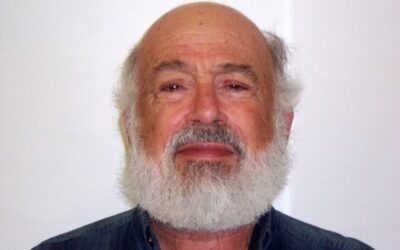Interview with Steve Wangen, ND
Mark Swanson, ND
Ever have that gut feeling? Most of his patients do. This issue of The Expert Report interviews Steve Wangen, ND, a Seattle, Washington–based naturopathic specialist and functional medicine practitioner whose expertise and practice are devoted to finding real solutions for irritable bowel syndrome (IBS) and the spectrum of functional bowel disorders. Much of his patient-centered approach uses food allergy, gluten sensitivity, microflora, and other gastrointestinal (GI) focused testing to evaluate the functional, physiological, and environmental balance of the GI tract. He is the author of The Irritable Bowel Syndrome Solution: How It’s Cured at the IBS Treatment Center and Healthier Without Wheat: A New Understanding of Wheat Allergies, Celiac Disease, and Non-Celiac Gluten Intolerance (both published by Innate Health Publishing).
The IBS Treatment Center in Seattle is a busy and bustling office. The name leaves no doubt about what you specialize in. Please give us a short history and some pearls for its success.
Dr Wangen: People want answers to problems with which they can identify. Being a specialist and putting yourself out there as one allows you to become very skilled at working with a particular issue or set of issues. You are always learning, but you don’t have to feel responsible for every health problem under the sun. It also allows you to focus your marketing, making it infinitely more effective. And of course, you still see and treat lots of other issues, because everything is tied together.
In IBS, “irritant behavior” is not what’s really going on in the gut. It’s a complex and mysterious functional gastrointestinal disorder (FGID). What are your expert insights on this?
Dr Wangen: I would describe IBS as complex but not as a mysterious functional disorder. IBS is simply a label for a set of symptoms. There are hundreds of causes for the digestive problems called IBS. The confusion is mostly related to this naming and the subsequent search for a single cure to this problem. The challenge is doing the detective work to track it down.
There is no diagnostic test for IBS. What are the intake and evaluation steps used in your practice that would lead to a definitive diagnosis and course of treatment?
Dr Wangen: Performing the right testing to identify potential causes, treating their problem, and ruling out other conditions is the major issue.
Can you update us on the current prevalence and patient demographics of IBS as we enter 2012?
Dr Wangen: The data show that at any one time about 10% of the population is suffering from some form of IBS and that 20% of the population has suffered or will suffer from it. That is a huge number. The data show that it is a predominantly middle-aged female problem.
What are the major classification types of IBS? Out of the IBS pool, what is the percentage incidence of each? How are these IBS types different in regard to their causes?
Dr Wangen: I honestly don’t consider classifying different types of IBS as having significant value, nor does it help me identify the cause. It serves no practical purpose for the patient or helps lead to treatment success. For example, a dairy allergy can cause either diarrhea or constipation or just abdominal pain. The more effective approach is to acknowledge that all of the various digestive symptoms may be caused by practically any of the issues that relate to digestion, including immune system issues, dietary issues, microbial issues, hormonal issues, and others. The Rome Diagnostic Criteria1 and a study by Longstreth et al2 have some statistics if one is interested.
Dr Swanson’s comment: The Rome III Diagnostic Criteria are the standard guide to the clinical diagnosis of FGID. They establish IBS diagnosis and the following subtypes based on stool form: IBS with constipation (IBS-C), IBS with diarrhea (IBS-D), mixed IBS (IBS-M), and unsubtyped IBS (IBS-U).1 Longstreth and others developed the Bristol Stool Form Scale (BSFS) to classify 7 stool types in IBS and other FGID.2,3 Classifying the IBS subtypes using Rome and BSFS is useful for clinicians when establishing IBS bowel habits at presentation and over time in response to treatment, as well as providing a standard for patient charting and establishing the continuity of care across the modalities and with published research.
Overall, what percentage estimate of your patients have an IBS history and symptoms suggesting food allergy may be a causative factor? What percentage tested are found to have 1 or more food allergies? In the food allergy–treated group, what percentage achieve a satisfactory reduction in their IBS symptoms?
Dr Wangen: 100% of my patients have symptoms that may be caused by food allergies. A majority do have an allergy to 1 or more foods, and many also have other conditions that also cause symptoms. The vast majority of our patients experience significant improvement with a complete treatment plan that addresses both food allergies and other conditions.
What is the most useful food sensitivity test in your practice for identifying the problem foods?
Dr Wangen: There is no one perfect test, nor one perfect antibody, or even just one lab.
Dr Swanson’s comment: A combined IgE/IgG 96-food allergy test is featured on Dr Wangen’s Web sites. In IBS, a subset of IgG food–reactive patients respond to an elimination diet. This group may have more pronounced mucosal immune activation and inflammation as a component, which benefits from the reactive food avoidance. It may also explain why others who are more mucsosal immune resilient to inflammation have little or no change in symptoms on their elimination diet.4 Common IBS IgG-mediated–reactive foods are yeast, milk, egg, wheat, beef, and soy. Patients having IBS with IgE-mediated allergic background factors tend to have more severe disease and IBS-D.5 Screening for IgG/IgG4-mediated allergy in IBS is also controversial and even strongly criticized. It deserves more studies.
Are food-allergic IBS patients more or less likely to have coexisting gluten intolerance vs non–food-allergic IBS patients?
Dr Wangen: Gluten intolerance is typically mediated by antibodies; thus, I would classify patients with celiac disease and other immune responses to gluten as “allergic.” And people with food allergies usually have more than 1. But gluten isn’t necessarily more important than many other food allergies. This discussion is a very important one that I investigate more thoroughly in my CME [continuing medical education] course.
Dr Swanson’s comment: Celiac disease (gluten enteropathy) is not a food allergy! It is the most far-reaching autoimmune food intolerance known, with 50 to 100 associated syndromes and complications, including lymphoma, dermatitis herpetiformis, and other serious illnesses.6,7
Are patients with seasonal allergic rhinitis, asthma, or eczema more likely to have IBS too?
Dr Wangen: I can’t necessarily say that they are more likely to have IBS, but these are common coexisting conditions.
Dr Swanson’s comment: Adults who have 1 or more conditions that make up the “allergic triad” are more likely to report a higher incidence of IBS (3.20 times higher), suggesting the role of mast cells as one etiology of IBS. Atopic IBS has been proposed as a specific subgroup.8
How frequently do IBS patients experience fructose intolerance? Is fructose elimination ever the single solution and the IBS resolves?
Dr Wangen: Fructose intolerance can certainly be a factor and occasionally the solution. But I find that fructose intolerance is blamed far more often than it’s actually the cause. Or, it’s just one piece of a much larger puzzle.
Dr Swanson’s comment: The low-FODMAP diet (low in fermentable short-chained sugars comprising oligo-, di-, mono-saccharides, and polyols) has been reported to have a rapid and satisfactory response in achieving symptom improvements in IBS. These sugars are accumulative in the diet, which might explain the mixed results of studies9-11 that have evaluated the effects of fructose and lactose.
What is going on in the depths of the gut when patients complain of “bloating”? It’s not all gas, is it?
Dr Wangen: True. Bloating is a very broad term, much like “stomach pain.” Bloating can be described as hard, spongy, puffy, etc. Gas may or may not be involved. Sometimes it’s used simply to describe inflammation.
Dr Swanson’s comment: Bloating primarily involves the following 4 mechanisms: volume of intra-abdominal contents, subjective visceral hypersensitivity (amplified perception of actual sensations), abdominal distension, and muscular activity of the abdominal wall. There is little evidence for excessive gas production in IBS.12,13
What role does small intestinal bacterial overgrowth (SIBO) have in IBS pathogenesis? What are the “red flag” predictors of SIBO that would suggest testing for it?
Dr Wangen: SIBO certainly has a place in the differential diagnosis for IBS, but it’s not nearly as significant or treatment responsive as some studies claim. Controlled studies have shown that there was absolutely no difference in breath test results between IBS sufferers and control groups. There is no symptom or history that leads me to suspect SIBO more than anything else.
Dr Swanson’s comment: Despite some observations that patients with IBS and healthy control subjects have similar lactulose breath test (LBT) results,14 other evidence indicates more frequent SIBO positives in patients having IBS, with normalization correlating with symptom improvement.15 The IBS-D subtype is associated more with a positive methane LBT result, and bloating and discomfort are associated more with a positive hydrogen LBT result.16,17
What test do you use for SIBO in your clinic? What are the most common bacteria found? And what do you use to treat it? And most importantly, do patients respond favorably?
Dr Wangen: Stool testing is the best tool that I have for SIBO, but it isn’t perfect. I don’t commonly need to treat bacteria, but I will say that if you ever see Pseudomonas show up, it’s a really bad actor. When it comes to gut pathogens, in most cases botanicals are just as effective as prescriptive agents.
Dr Swanson’s comment: SIBO screening is performed using breath testing to measure hydrogen and methane in breath samples following ingestion of a test sugar, usually lactulose or glucose. Some laboratories also offer a urinary organic acids profile for assisting in SIBO diagnosis. SIBO stool tests would be a lesser known methodology.
Low-grade “micro” inflammation is an element of IBS pathophysiology. Which IBS type is more likely to have ongoing chronic gut inflammation?
Dr Wangen: Everything we’ve described up to this point can trigger inflammation. And I feel that inflammation plays a role in all IBS patients, even if we don’t have a tool to measure it.
Dr Swanson’s comment: Levels of highly sensitive C-reactive protein, a marker of low-grade inflammation, are higher in patients with IBS compared with healthy controls, although they remain in the normal range.18
The presence of intestinal protozoa can result in significant IBS symptomatology and disability. What is your insight and approach to identifying and treating parasitic bugs?
Dr Wangen: Parasites are a fascinating and complex area. PCR [polymerase chain reaction] stool analysis has proven to really open the door for assessing intestinal protozoa. But that doesn’t always guarantee that they are causing symptoms or will easily respond to treatment. I have not found botanicals to be as effective as pharmaceuticals.
Dr Swanson’s comment: Polymerase chain reaction stool testing is available at Metametrix Clinical Laboratory (www.metametrix.com).
What is your experience using probiotics (and prebiotics) in IBS? It’s not entirely clear which probiotic strains are the most effective, and some may actually worsen symptoms.
Dr Wangen: In most cases, it’s important to use a broad-spectrum probiotic to cover your bases. There is no one magic species or strain of good bacteria. And you have obviously noticed that some people don’t respond positively to probiotics. This can be due to the probiotic, but it is often a clue that something else needs to be treated first.
Dr Swanson’s comment: The efficacy challenge is to validate products based on the presence of well-researched evidence-based strains, adequate potency, and viable GI delivery. Equally important is the quality of the finished product’s manufacturing process and batch handling. Prebiotics, such as fructooligosaccharides, chicory, and inulin, could also exacerbate IBS visceral hypersensitivity in some patients.10
Who are the best IBS candidates for taking digestive enzymes and/or betaine hydrochloride?
Dr Wangen: Like all of the other treatments, it’s difficult to assess this based on symptoms. Many people benefit from enzymes and HCL [hydrochloride], but often they are only treating a symptom, not the cause of the problem. But of course, they each have their place. Often the best way to find out if they are going to be an important part of the treatment plan is simply to prescribe a trial course.
Is IBS more likely to coexist with gastroesophageal reflux disease and dyspepsia?
Dr Wangen: Certainly, the upper gastrointestinal problems are common in IBS patients. Fortunately, much of this resolves along with the IBS.
Dr Swanson’s comment: The prolonged use of proton-pump inhibitors for gastroesophageal reflux disease may be a common producer of SIBO, which can trigger IBS symptoms.19
Do you use any natural agents or supplement combinations that inhibit gut serotonin (5-HT) or target receptor signaling (5-HT3 or 5-HT4)?
Dr Wangen: This really is focusing on treating a symptom of the problem, not the cause. I leave that to the pharmaceutical companies.
Dr Swanson’s comment: Enteric serotonin (5-HT) release is altered in IBS and functional gut disorders, which research supports as a plausible cause. Release of 5-HTP in IBS-D is up to 10-fold greater than that in healthy controls. It is also correlated with mast cell counts and pain severity, suggesting a mucosal immune reaction.20 Melatonin may help downregulate serotonergic linked IBS activity, reducing “rapid-transit” time discomfort and pain scores in patients with IBS-D.21,22 The combination of nighttime melatonin (6 mg) with 1 or more anti-inflammatory and mast cell–inhibiting plant extracts (eg, quercetin, curcumin, ginger, and an extract of Boswellia seratta providing 30% 3-O-acetyl-11-keto-beta-boswellic acid) is a naturopathic treatment option worth trying.
How much of IBS is linked to stress and anxiety? Which IBS types are more likely to be a consequence?
Dr Wangen: I find that stress is highly overrated in the IBS world. It will exacerbate the symptoms. I can’t say that any IBS type is more likely to be related to stress. Usually, if we can solve the IBS problem, then the stress goes way down. Having IBS can certainly be very stressful.
Dr Swanson’s comment: Both IBS and generalized anxiety disorder (GAD) are highly reactive to stress. Comorbidity with IBS and GAD is common and strong, affecting 1 in 6 individuals with IBS. Anxiety-prone patients with IBS have significantly greater severity and impairment, a magnified visceral hypersensitivity index, and a lower pain threshold.23 A dysregulated maladaptive stress response associated with anxiety and IBS flare-ups may reflect an underlying immune activation with low-grade inflammation.24 Intriguing are the studies25-27 demonstrating that microflora and the intestinal biofilm indeed communicate socially with the brain and influence stress responses and anxiety-like behavior.
Do you use acupuncture, counseling, biofeedback, or hypnotherapy as adjuvant IBS support in your practice?
Dr Wangen: Those aren’t my areas of expertise, so I refer out for them when appropriate.
Dr Swanson’s closing comment: I want to thank Dr Wangen for participating in this interesting and “outside the box” interview. Solutions do await some, but the real mystery of IBS lives on. More information about Dr Wangen’s approach to IBS, food allergy, and gluten intolerance can found on his Web sites and blog (www.ibstreatmentcenter.com, www.allergytreatmentcenter.com, www.ibstreatmentcenter.blogspot.com, and www.innatehealthclasses.com).
 Mark Swanson, ND, writes “The Expert Report” column, which is featured in NDNR. Dr. Swanson has over 25 years experience as chief medical advisor, research and technical consultant, and products formulations expert to leading practitioner brand supplement manufacturers. He is a former associate editor for the American Journal of Naturopathic Medicine, national product director, and published researcher. He is a pioneer graduate of Bastyr University, 1984. Dr. Swanson has his private practice specializing in Preventics Care and Functional Medicine, in Sequim, Washington. Contact: drmarkswanson@gmail.com
Mark Swanson, ND, writes “The Expert Report” column, which is featured in NDNR. Dr. Swanson has over 25 years experience as chief medical advisor, research and technical consultant, and products formulations expert to leading practitioner brand supplement manufacturers. He is a former associate editor for the American Journal of Naturopathic Medicine, national product director, and published researcher. He is a pioneer graduate of Bastyr University, 1984. Dr. Swanson has his private practice specializing in Preventics Care and Functional Medicine, in Sequim, Washington. Contact: drmarkswanson@gmail.com
References
1. Rome Foundation. To improve the lives of people with functional GI disorders. http://www.romecriteria.org. Accessed December 1, 2011.
2. Longstreth GF, Thompson WG, Chey WD, Houghton LA, Mearin F, Spiller RC. Functional bowel disorders [published correction appears in Gastroenterology. 2006;131(2):688]. Gastroenterology. 2006;130:1480-1491.
3. National Center for Biotechnology Information. Bristol Stool Form Scale. http://www.ncbi.nih.gov/books/NBK51939/. Accessed December 1, 2011.
4. Atkinson W, Sheldon TA, Shaath N, Whorwell PJ. Food elimination based on IgG antibodies in irritable bowel syndrome: a randomized controlled trial. Gut. 2004;53:1459-1464. Author’s reply to letter to editor.
5. Vivinus-Nébot M, Dainese R, Anty R, et al. Combination of allergic factors can worsen diarrheic irritable bowel syndrome: role of barrier defects and mast cells [published online ahead of print September 20, 2011]. Am J Gastroenterol. doi:10.1038/ajg.2011.315. Medline:21931380
6. Fasano A. Systemic autoimmune disorders in celiac disease. Curr Opin Gastroenterol. 2006;22(6):674-679.
7. Fasano A. Celiac disease insights: clues to solving autoimmunity. Scientific American. July 27, 2009.
8. Tobin MC, Moparty B, Farhadi A, DeMeo MT, Bansal PJ, Keshavarzian A. Atopic irritable bowel syndrome: a novel subgroup of irritable bowel syndrome with allergic manifestations. Ann Allergy Asthma Immunol. 2008;100(1):49-53.
9. Gibson PG. Food choice as a key management strategy for functional gastrointestinal symptoms. Paper presented at: American College of Gastroenterology 2011 Annual Scientific Meeting and Postgraduate Course; October 31, 2011; Washington, DC.
10. Gibson PR, Shepherd SJ. Evidence based dietary management of functional gastrointestinal symptoms: the FODMAP approach. J Gastroenterol Hepatol. 2010;25:252-258.
11. About.com. Foods on the FODMAP diet. http://ibs.about.com/od/ibsfood/a/The-FODMAP-Diet.htm. Accessed December 1, 2011.
12. Azipiroz F, Malagelada JR. Abdominal bloating. Gastroenterology. 2005;129(3):1060-1078.
13. Agrawal A, Whorwell PJ. Review article: abdominal bloating and distension in functional gastrointestinal disorders: epidemiology and exploration of possible mechanisms. Aliment Pharmacol Ther. 2008;27(1):2-10.
14. Bratten JR, Spanier J, Jones MP. Lactulose breath testing does not discriminate patients with irritable bowel syndrome from healthy controls. Am J Gastroenterol. 2008;103(4):958-963.
15. Pimentel M, Chow EJ, Lin HC. Normalization of lactulose breath testing correlates with symptom improvement in irritable bowel syndrome: a double-blind, randomized, placebo-controlled study. Am J Gastroenterol. 2003;98(2):412-419.
16. Kim EJ, Paik CN, Chung WC, Lee KM, Yang JM, Choi MG. The characteristics of the positivity to the lactulose breath test in patients with abdominal bloating. Eur J Gastroenterol Hepatol. 2011;23(12):1144-1149.
17. Sachdeva S, Rawat AK, Reddy RS, Puri AS. Small intestinal bacterial overgrowth (SIBO) in irritable bowel syndrome: frequency and predictors. J Gasteroenterol Hepatol. 2011;26(suppl 3):135-138.
18. Hod K, Dickman R, Sperber A, et al. Assessment of high-sensitive CRP as a marker of micro-inflammation in irritable bowel syndrome. Neurogastroenterol Motil. 2011;23(12):1105-1110.
19. Compare D, Pica L, Rocco A, et al. Effects of long-term PPI treatment on producing bowel symptoms and SIBO. Eur J Clin Invest. 2011;41(4):380-386.
20. Cremon C, Carini G, Wang B, et al. Intestinal serotonin release, sensory neuron activation, and abdominal pain in irritable bowel syndrome. Am J Gastroenterol. 2011;106(7):1290-1298.
21. Mariotti R, Yarnell E. Melatonin and the gut: the untold connection. NDNR. 2006:October Docere.
22. Radwan P. Skrzydlo-Radomanska B, Radwan-Kwiatek K, Burak-Czapiuk B, Strzemecka J. Is melatonin involved in the irritable bowel syndrome? J Physiol Pharmacol. 2009;60(suppl 3):67-70.
23. Lee S, Wu J, Ma YL, Tsang A, Guo WJ, Sung J. Irritable bowel syndrome is strongly associated with generalized anxiety disorder: a community study. Aliment Pharmacol Ther. 2009;30(6)643-651.
24. O’Malley D, Quigley EM, Dinan TG, Cryan JF. Do interactions between stress and immune responses lead to symptom exacerbations in irritable bowel syndrome? Brain Behav Immun. 2011;25(7):1333-1341.
25. Neufeld KA, Kang N, Bienenstock J, Foster JA. Effects of intestinal microbiota on anxiety-like behavior. Commun Integr Biol. 2011;4(4):492-494.
26. Cryan JF, O’Mahony SM. The microbiome-gut-brain axis: from bowel to behavior. Neurogastroenterol Motil. 2011;23(3):187-192.
27. Rao AV, Bested AC, Beaulne TM, et al. A randomized, double-blind, placebo-controlled pilot study of a probiotic in emotional symptoms of chronic fatigue syndrome. Gut Pathog. 2009;1:e6. http://www.ncbi.nlm.nih.gov/pmc/articles/PMC2664325/?tool=pubmed. Accessed December 1, 2011.























